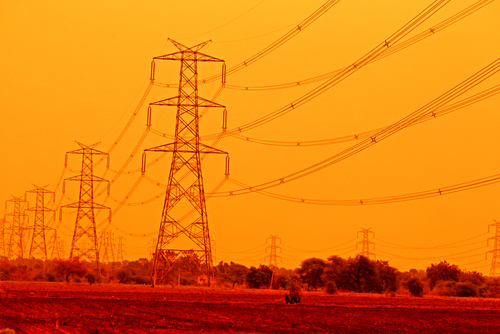A Fair COP?... Nothing like it, and history will hold us to account
The first East India Company bootclunked onto Indian soil in 1765, and the last representative of the Raj skulked off in 1938. in between, the Mother Country made off with $45 Trillion of the Subcontinent’s assets: that’s more than the UK’s current GDP…by a factor of seventeen. And when Robert Clive (the thug of Market Drayton) was questioned on the sheer scale of the pillage, he told the Court that only an idiot would fail to steal everything in sight with such rich pickings on offer…before being inappropriately elevated to the House of Lords as the first Baron Clive, no doubt for services to kleptocracy. The East India Company, which Clive represented, had a monopoly on trade with the Subcontinent, and boy did it make it pay: it taxed native Indians through the nose and used the taxes to “pay” for their cotton, jute and spices (and everything in between), so they effectively got it all for nothing. In other words, it is theft on a grand scale.
That ferocious level of larceny fuelled Britain’s industrialisation for the best part of two hundred years: it couldn’t have been done without India…but then add slavery into the mix too, orchestrated by British “entrepreneurs” and netting UK “investors” £20 Million by the time it was finally abolished in 1834 (£2.7 Trillion in today’s money); and, of course, the spiritual home of that vile and shameful practice, the United States, didn’t abolish slavery until forty years later.
What emerges most graphically from those two examples (we could cite more) is that the geopolitical balance of the planet was fundamentally thrown out of whack by a handful of leading economies from the late eighteenth century onwards (the UK and the United States, amongst them). They mostly became developed economies by trampling over the well-being of what are now developing or emerging economies, pillaging and polluting the planet since the dawn of the Industrial Revolution. So, is it appropriate or even acceptable now to draw a discrete veil over what happened a century or so back and allow those entrenched inequalities to stand?
It’s not an entirely hypothetical issue.
Levelling the Playing Field
At this month’s COP29 Climate Summit in Azerbaijan, developing and emerging economies asked for annual payments of $1.3 trillion to level up the environmental playing field. Given the amount historically plundered from India alone (see above), that’s not exactly asking the earth, especially when it comes to saving it.
Indeed, Panama’s Climate Envoy, Juan Carlos Gomez, put the required remedial payments at $5 Trillion annually. So what did they get? Well, they got $300 Billion a year…divided between 167 countries, which roughly equates to $1.8 Billion each…or, in other words, less than an eighth of what the United States Federal Government spends on school buses every year, and a quarter of its annual defence spending.
That’s not so much levelling up as copping out…especially bearing in mind that by the time this remedial plan rolls around to actual cash payments, the United States, the dominant economic force in COP, probably won’t even be a party to the Paris Climate Accords anymore…thanks to a certain Donald J Trump and 74 Million American voters.
$300 Billion a year may not be enough (it’s not), but developing nations might not even get that once Trump pulls up in his slippers behind the Resolute desk, added to which any cash support will come in the form of “layered” loans rather than grants. Amb Ali Mohamed (Kenya’s Special Envoy and Chair of the African Group of negotiators at COP29) wasn’t far from the mark when he called the package “a joke and an insult”, with the global north “playing poker with people’s lives”.
He’s right…
When it comes to protecting our precious planet’s future, it’s imperative to level up, not down, and most economists calculate that at least $1.3 Trillion will be required annually to enable developing nations to tackle the impending climate crisis. There’s a reason for that: trillions of dollars have been historically pilfered from those self-same economies, and they’re not starting from the same blocks. This isn’t about philanthropy; it’s about equality and fairness.
After all, those who forget the lessons of history are destined to repeat them.
Invest in Red Ribbon Asset Management

Red Ribbon Asset Management (www.redribbon.co) aims to harness the full potential of fast evolving and emerging technologies to meet the needs of global communities as part of a circular economy, fully recognising the compelling demands of planet people and profit.

.jpg)

-1.png?width=150&height=150&name=Untitled%20design%20(7)-1.png)


Leave a Reply